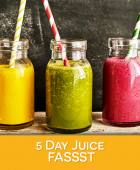Sugar- Not Sweet for Your Brain
Sugar – Not Sweet for Your Brain
Excessive sugar has a negative effect on the brain. The key to a well functioning brain is glutamic acid, a compound found in many vegetables. The B vitamins play a major role in dividing glutamic acid into complementary compounds which produce a “proceed” or “control” response in the brain. B vitamins are also manufactured by friendly bacteria which live in our intestinal tract. When refined sugar is regularly eaten, these bacteria wither and die, and our supply of B vitamins gets low. Too much sugar makes one sleepy and lethargic. We may lose our ability to calculate and our memory gets foggy. A 2012 study on rats, conducted by researchers at UCLA, found that a diet high in fructose hinders learning and memory by literally slowing down the brain. The researchers found that rats who over-consumed fructose had damaged synaptic activity in the brain, meaning that communication among brain cells was impaired.1
High sugar and high carb foods can also mess with the neurotransmitters that promote mood stability. Consuming sugar stimulates the release of the mood-boosting neurotransmitter serotonin. That may sound like a good thing, but constantly over-activating serotonin pathways can deplete our limited supplies of this neurotransmitter, which can contribute to symptoms of depression, according to Dr. Datis Kharrazian.2
Teenagers may be especially vulnerable to the effects of sugar. A recent study on adolescent mice, conducted at Emory University School of Medicine, found a diet high in sugar contributed to depression and anxiety-like behavior. And a 2013 study found that insulin resistance and higher blood glucose levels — hallmarks of diabetes — are linked with a greater risk for developing neurodegenerative disorders like Alzheimer’s.3
Notes
1 http://www.huffingtonpost.com/2015/04/06/sugar-brain-mental-health_n_6904778.html accessed 8/26/15
2 Ibid
3 Ibid
Read MoreAcid Reflux and Sugar
Acid Reflux and Sugar
Research shows that eliminating sugar and refined carbohydrates can help control acid reflux. A very low-carbohydrate diet improves gastroesophageal reflux and its symptoms. That’s the title of a study that was published in Digestive Disease Science, 2006.
In addition, here are some other dietary interventions to help you heal acid reflux:
- Eliminate dairy and gluten
- Eliminate alcohol, caffeine, citrus, tomato-based foods, and spicy foods.
- Don’t eat within 3 hours before bed.
- Don’t eat junk food.
- Avoid processed foods.
- Eat cooked foods, like fish, chicken, lightly steamed veggies, and brown, red or wild rice, and quinoa; include veggies juices and green smoothies; avoid raw food for now.
- Eat smaller, more frequent meals, at least 4 a day.
Include Natural Remedies to Soothe the Gut
- Take 2 to 3 capsules of digestive enzymes with each meal. I recommend Ness #4 and 16
- Re-inoculate the gut with healthy bacteria by using probiotics. I recommend HMF Forte.
- Try 75 to 150 mg of zinc carnosine twice a day between meals — this has been extensively studied and is used frequently in Japan.
- Take 3 to 5 grams of glutamine powder in water twice a day to help heal the gut lining.
- Chew 2 to 3 chewable tablets of DGL (a form of licorice) 15 minutes before meals. Do not use licorice candy.
- Take 200 to 400 mg of magnesium citrate or glycinate twice a day.
Notes: Dig Dis Sci. 2006 Aug;51(8):1307-12. Epub 2006 Jul 27.Digestive Diseases and Sciences, Aug. 2006).
Read More
How Sugar Causes Aging
How Sugar Causes Aging
Sugar is one of the major factors that increase production of advanced glycation end products (AGEs) inside your body. AGEs form when sugar reacts with amino acids. Along with oxidation, AGEs is a major contributor to aging and disease. Over time high blood sugar levels dramatically increase age-accelerating AGEs. This is why type 2 diabetics many times appear that they have not aged well and look older than their real age. But this age-accelerating effect is NOT just limited to diabetics.
Limiting or omitting sugar is a well-known key to longevity, because sugar molecules are probably the most damaging of all. Dr. Mercola says, “Fructose in particular is an extremely potent pro-inflammatory agent that creates AGEs and speeds up the aging process. It also promotes the kind of dangerous growth of fat cells around your vital organs that are the hallmark of diabetes and heart disease. In one study on fructose, 16 volunteers on a controlled diet including high levels of fructose produced new fat cells around their heart, liver and other digestive organs in just 10 weeks!”1
Sugar also increases insulin and leptin levels and decreases receptor sensitivity for both of these vital hormones, which is a major factor of premature aging and age-related chronic degenerative diseases such as heart disease.
When you eat a typical American diet, your blood sugar can elevate and stay that way continually. Unfortunately, the average American consumes a whopping 2.5 pounds of sugar a week! When you add other low-quality carb foods such as bread, cereals, doughnuts, bagels, pasta, pastries, cookies, and candy it’s easy to see why so many Americans are in such poor health.
This type of high-sugar and high-carb diet is also what’s driving the obesity epidemic—NOT diets high in fat. Why We Get Fat author Gary Taubes explains that [refined] carbs, like fructose and other sugars, destroy your insulin and leptin sensitivity, which in turn causes your cells to accumulate more fat, and makes it more difficult to get rid of the extra weight. If you want to look and feel younger longer, it’s time to ditch sugar and most grains!
Notes
1 http://articles.mercola.com/sites/articles/archive/2012/02/22/how-sugar-accelerates-aging.aspx
Find the Hidden Sugars!
Here are some products with a high sugar content that are often NOT considered high in sugar.
BBQ sauce—13 grams of sugar for each 2 Tbsp.
Fruit yogurt—19 grams in many single serving containers. It tastes like desert—that’s because it is desert.
Sweet and sour chicken—19 grams of sugar in many servings.
Spaghetti sauce—one-half cup may contain as much as 12 grams sugar plus the pasta turns rapidly to sugar because it’s digested so rapidly
Sodas—one 8-ounce can offers 29 sugar grams—well this one you probably are aware of—just wanted you to see how much sugar is actually there.
Dried fruit—1/3 cup can have as much as 24 grams of sugar; many manufacturers add sugar.
Gummy worms—44 grams of sugar in every 10 worms
Energy bars—one bar can pack in 12 grams or more of sugar
Energy drinks—some pack in as much as 83 grams of sugar
Sugar Hijacks Your Brain
Sugar Hijacks Your Brain
Sugar is sneaky—and unbeknown to many of us, we’ve become hooked before we know it. In ways that drugs such as nicotine, cocaine and heroin hijack the brain’s reward pathway and make users dependent, sugar is addictive in the same way.
Sugar Detox
“It almost feels like you’re detoxing from drugs,” some people say. There are four major components of addiction: binging, withdrawal, craving, and cross-sensitization. All of these components have been observed in animal models of addiction—sugar as well as drugs.
A typical experiment goes like this: rats are deprived of food for 12 hours each day, then given 12 hours of access to a sugary solution and regular chow. After a month of following this daily pattern, rats display behaviors similar to those on drugs of abuse.
They’ll binge on the sugar solution in a short period of time, much more than their regular food. They also show signs of anxiety and depression during the food deprivation period. Many sugar-treated rats who are later exposed to drugs, such as cocaine and opiates, demonstrate dependent behaviors toward the drugs compared to rats who did not consume sugar beforehand.
Like drugs, sugar spikes dopamine release. Over the long term, regular sugar consumption actually changes the gene expression and availability of dopamine receptors in both the midbrain and frontal cortex.
This means that repeated access to sugar over time leads to prolonged dopamine signaling, greater excitation of the brain’s reward pathways and a need for even more sugar to activate all of the midbrain dopamine receptors like before. The brain becomes tolerant to sugar—and more is needed to attain the same “sugar high.”
Sugar Withdrawal
In a 2002 study by Carlo Colantuoni and colleagues of Princeton University, rats who had undergone a typical sugar dependence protocol then underwent “sugar withdrawal.” This was facilitated by either food deprivation or treatment with naloxone, a drug used for treating opiate addiction which binds to receptors in the brain’s reward system.
Both withdrawal methods led to physical problems, including teeth chattering, paw tremors, and head shaking. Naloxone treatment also appeared to make the rats more anxious, as they spent less time on an elevated apparatus that lacked walls on either side. Similar withdrawal experiments by others also report behavior similar to depression in tasks such as the forced swim test. Rats in sugar withdrawal are more likely to show passive behaviors (like floating) than active behaviors (like trying to escape) when placed in water, suggesting feelings of helplessness.
A new study published by Victor Mangabeira and colleagues in Physiology & Behavior reports that sugar withdrawal is also linked to impulsive behavior. Initially, rats were trained to receive water by pushing a lever. After training, the animals returned to their home cages and had access to a sugar solution and water, or just water alone. After 30 days, when rats were again given the opportunity to press a lever for water, those who had become dependent on sugar pressed the lever significantly more times than control animals, suggesting impulsive behavior.
I encourage you to swear off sugar for good. There are also countless articles and books about the boundless energy and new-found happiness in those who have sworn off sugar for good. There are great healthful sweeteners to choose from such as stevia and coconut sugar. So why not say good bye to sugar for good and see how good you can feel? I did years ago and it was one of my life changers.
Adapted from http://qz.com/353138/this-is-what-happens-to-your-brain-when-you-stop-eating-sugar/
Read More








